Undergraduate
<10:1
Student to Faculty Ratio in classrooms
75%
of students have industry experience
65%
of students have research experience
UK is the only university in Kentucky that offers biosystems engineering as an undergraduate major, and our robust program includes more specialty areas than those of other colleges across the country. This flexibility in the curriculum allows students to customize their technical electives to their future career goals. Undergraduate certificates are also available in power and energy as well as distillation, wine and brewing studies.
Our biosystems engineering undergraduate program is housed within the Stanley and Karen Pigman College of Engineering.
The Department of Biosystems & Agricultural Engineering educates engineers who ensure the world has clean water systems, adequate food production and sustainable energy sources. Biosystems engineering integrates aspects of traditional engineering fields like mechanical, chemical and civil engineering with biological sciences, and focuses on agricultural and environmental applications.
Biosystems engineers are challenged to improve the sustainability of production systems, decrease or eliminate environmental hazards and preserve natural resources. Biosystems engineers devise practical, efficient solutions for producing, storing, transporting, processing and packaging biological and agricultural products. They solve problems related to systems, processes and machines that interact with humans, plants, animals, microorganisms and biological materials. They also develop solutions for responsible, alternative uses of biological products, byproducts and wastes and of our natural resources — soil, water, air and energy.
Areas of Study
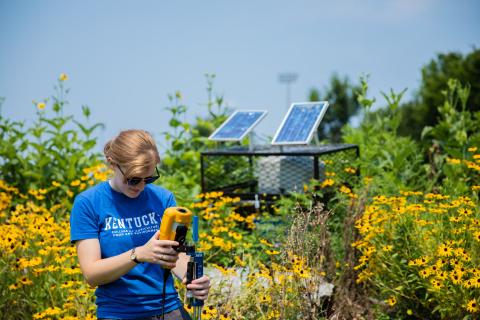
Bioenvironmental
Prepares engineers to work in natural resource conservation and environmental quality enhancement. Engineers in this area study surface water hydrology, groundwater hydrology, sediment transport, water quality, chemical rate and transport, waste management, reclamation of disturbed lands, site remediation, irrigation and drainage.
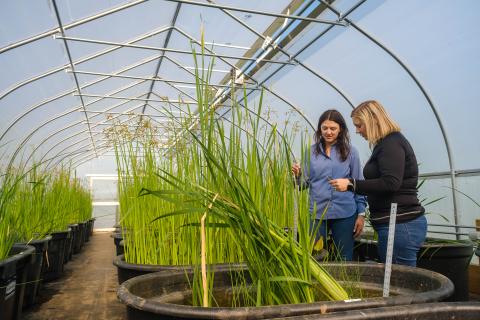
Controlled Environment
Involves the development and design of heating, cooling and ventilation systems for the control of indoor environments. Environmental control is an essential component of total confinement animal housing, greenhouse production, aquaculture and human housing. Engineers in this option study heat and mass transfer, physics of plant and animal environments, biometeorology, structural design, air quality, heating, ventilation and air-conditioning design.
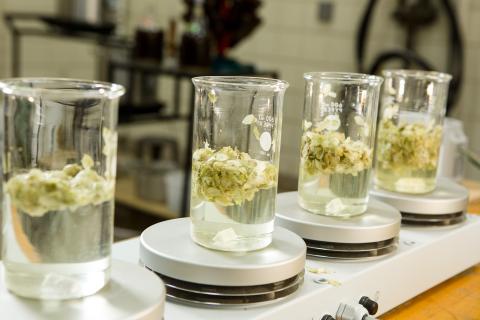
Food & Bioprocessing
Involves the development of equipment and methods for efficient and ecologically sound manufacturing of food products (from the farm to the grocery) and biological commodities (such as proteins, enzymes, biofuels). Engineers in this area receive extensive training in microbiology, biochemical engineering, heat and mass transfer, enzyme kinetics and fermentation, storage of biological products and materials handling.
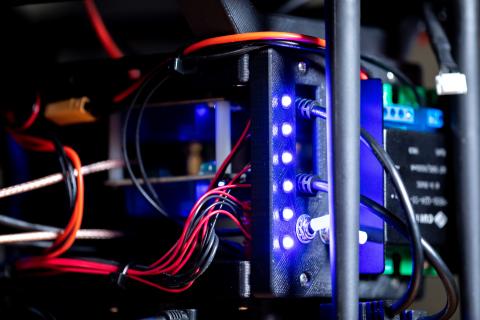
Machine Systems
Prepares engineers to conceive and design power units, tillage, planting and harvesting systems, materials handling equipment and processing equipment. Production and processing of biological products rely heavily on the use of automated machinery. Engineers in this area work with fundamental concepts including system dynamics, kinetics, automated controls, machine design, kinematics, fluid power, soil dynamics, plant-machine interactions and digital electronics.
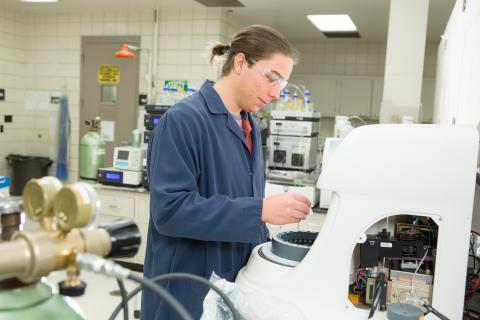
Pre-Biomedical
Prepares students for graduate work in biomedical engineering after completing an undergraduate degree in biosystems engineering. Students can also earn a minor in biomedical engineering. With this specialization, students are equipped with a unique blend of skills to focus on human health challenges within the broader context of all biological and environmental aspects of engineering that are included in the biosystems engineering discipline. Undergraduates who have completed this option and are in good academic standing are encouraged to apply to biomedical engineering graduate programs.
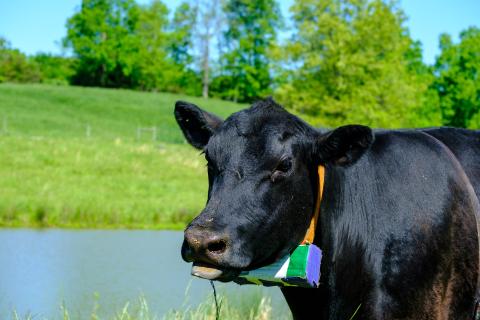
Pre-Med / Pre-Vet
Prepares students for medical or veterinary school after completing an undergraduate degree in biosystems engineering. Students take an additional 8-10 credits of biology and chemistry coursework that fulfill professional program requirements and can integrate biochemistry and physiology courses into their program, preparing them to take the MCAT or CASPer entrance exams. With this specialization, students cultivate problem-solving skills and a systematic approach to addressing challenges in human and animal health fields.
Timeline & Requirements
The undergraduate Biosystems Engineering program is accredited by the Engineering Accreditation Commission of ABET, under the criteria for Biological Engineering and Similarly Named Engineering Programs.
Department of Biosystems and Agricultural Engineering
128 C.E. Barnhart Building
University of Kentucky
Lexington, KY 40546-0276
859-257-3000
Fax: 859-257-5671
────────────────────
